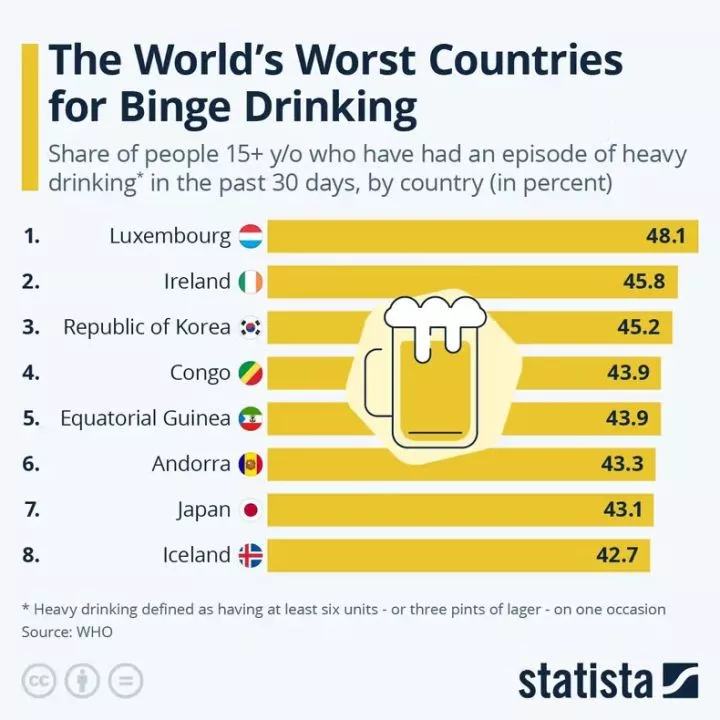Binge drinking- drinking a lot of alcohol in a short amount of time is a growing problem around the world, causing serious health and social issues. It often happens at parties or during holidays and is connected to culture, money, and how alcohol is controlled in different places.
According to the World Health Organization (WHO), binge drinking means having more than six units of alcohol (about three pints of beer) in one sitting within a 30-day period. While many people think this mostly happens in rich countries, it’s also very common in developing ones.
Two African countries, Congo (Brazzaville) and Equatorial Guinea, are among the top nations for binge drinking.
The WHO reports that places like Central Europe, the South Pacific, and parts of the Caribbean have some of the highest levels of alcohol use, with beer and wine being the most popular drinks. In many of these regions, drinking is tied to the fact that they produce a lot of alcohol—like France and Germany.
But Africa shows a different pattern. In Congo and Equatorial Guinea, about 43.9% of people surveyed said they binge drink. In these countries, alcohol is cheap, easy to get, and strongly connected to cultural traditions, which all play a big role in why binge drinking is so common.

To begin with, local drinks like palm wine and homemade liquors are very cheap and easy to find. Unlike expensive imported alcohol, these traditional beverages are available to almost everyone, even those living in villages. Because they’re so affordable and everywhere, drinking becomes a regular part of daily and social life.
On top of that, African events—like weddings, funerals, or cultural festivals—are very community-focused. At these gatherings, drinking is less about being careful and more about joining in and being part of the moment with others.
But there are serious downsides. Binge drinking doesn’t just affect health—it also leads to more accidents, family violence, and serious health problems over time, like liver damage and heart disease.

